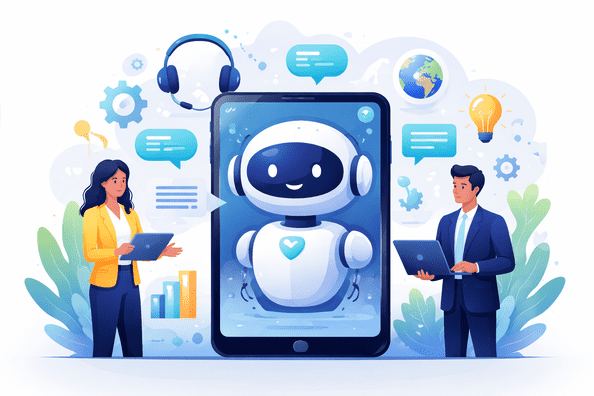Artificial Intelligence has migrated from the realm of science fiction into our everyday lives, transforming industries and redefining possibilities. Central to this transformation is the AI Engineer—an innovator who combines deep learning research, rigorous software engineering, and ethical foresight to build systems that learn, adapt, and augment human capabilities. From healthcare diagnostics to autonomous vehicles, AI Engineers are the architects of intelligence, shaping tools that can analyze complex data patterns, make decisions, and interact with users in increasingly natural ways.
Understanding the Role of an AI Engineer
At its core, the role of an AI Engineer bridges theory and practice. These professionals begin by identifying business or scientific problems that can benefit from data-driven solutions. They then design data pipelines to collect and clean raw inputs—such as medical images or sensor readings—carefully curating datasets to reduce noise and bias. Next comes model development, where AI Engineers select appropriate algorithms ranging from classical statistical methods to modern deep neural networks. Once a model demonstrates sufficient accuracy in laboratory conditions, the engineer deploys it to a production environment, ensuring that it scales reliably, responds with low latency, and integrates seamlessly into existing software architectures. Post-deployment, continuous monitoring becomes essential: data distributions shift over time, user behavior evolves, and new biases can emerge, requiring ongoing retraining and fairness audits.
Underlying every step is the need to translate complex techniques into practical, maintainable solutions. An AI Engineer must converse fluently with data scientists, software developers, operations teams, and business stakeholders, explaining how a model’s inner workings lead to real-world value. This interdisciplinary fluency ensures that models not only perform well in experiments but also drive measurable impact when serving millions of users.
Essential Technical and Interpersonal Skills
Success as an AI Engineer demands a blend of technical mastery and soft skills. Proficiency in languages like Python and familiarity with libraries such as TensorFlow or PyTorch are fundamental. Equally important is an understanding of data engineering tools—SQL for querying databases, Airflow for scheduling workflows, and cloud platforms like AWS or Google Cloud for scalable compute. Yet technical chops alone are insufficient. AI Engineers must exercise critical thinking to frame problems correctly, weighing trade-offs between model complexity and interpretability. They need strong communication abilities to present findings to executives in clear terms and collaborate effectively with product managers who define success metrics. Adaptability also proves vital: research breakthroughs appear rapidly, and engineers must continually learn new architectures and tools, sometimes prototyping on bleeding-edge repositories before they mature into stable frameworks.
Real-World Applications That Illustrate Impact
Consider a healthcare startup tackling early detection of diabetic retinopathy. An AI Engineer leads the project from data ingestion—working with ophthalmologists to label tens of thousands of retinal scans—through model training on convolutional neural networks that achieve near-expert accuracy. After rigorous validation, the model is containerized and deployed to a hospital’s imaging pipeline, where it flags high-risk patients in real time, enabling quicker intervention. Continuous feedback loops collect new scans and outcomes, refining the system’s performance and uncovering subtle demographic biases, which the engineer addresses through advanced fairness techniques.
In another example, an AI Engineer at a global e-commerce firm enhances personalization by building a hybrid recommendation engine. By merging collaborative filtering with deep learning, the system captures both user behavioral signals and item metadata. The engineer implements the model within a microservice architecture, orchestrated by Kubernetes, and integrates A/B testing to measure uplift in click-through and conversion rates. Monthly retraining schedules keep recommendations fresh as holiday trends or new product launches shift consumer interests.
Navigating Challenges and Ethical Considerations
Building AI systems at scale introduces complex challenges beyond pure algorithmics. Data privacy regulations such as GDPR and CCPA impose strict controls on how personal information is collected, stored, and processed. AI Engineers must embed encryption, anonymization, and secure access controls into data pipelines. Furthermore, the risk of perpetuating societal biases looms large; without vigilant oversight, models trained on historical data can reinforce inequities in lending, hiring, or policing. Addressing this requires not only technical interventions—such as re-weighting samples or adversarial debiasing—but also a commitment to transparency. Many teams now adopt “ethics checklists” and convene diverse review boards to audit model behavior before deployment.
Explainability remains a critical concern, especially in regulated fields like finance or healthcare. Black-box deep learning models often fail to inspire trust among end users or regulators. To mitigate this, AI Engineers build interpretable surrogates or deploy post-hoc interpretation tools that highlight which features most influence a decision. By coupling rigorous testing with clear, accessible explanations, engineers foster confidence that AI recommendations are both accurate and fair.
Building Your Path as an Aspiring AI Engineer
Aspiring AI Engineers should ground themselves in fundamental concepts such as linear algebra, probability, and core machine learning algorithms before diving into advanced architectures. Hands-on experience—via end-to-end projects that include data collection, model training, and deployment—builds the intuition needed to troubleshoot real-world complexities. Publishing code repositories or blog posts on platforms like GitHub not only showcases skills but also invites community feedback. Participation in competitions (e.g., Kaggle) and attendance at conferences such as NeurIPS or ICML expose engineers to the latest research and foster valuable networks. Finally, embedding ethical considerations into every stage—from dataset design through monitoring—ensures that the intelligent systems you build respect individual rights and contribute positively to society.
Conclusion
An AI Engineer occupies a pivotal role in today’s technological landscape, blending research insights with engineering rigor to craft intelligent systems that transform industries and improve lives. Success hinges not only on technical expertise but also on effective communication, ethical stewardship, and lifelong learning. By mastering these dimensions, AI Engineers will continue to drive innovation, ensuring that the future of intelligence is both powerful and responsible.



